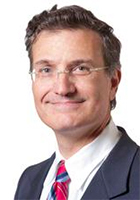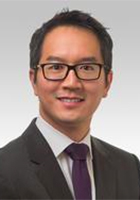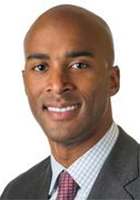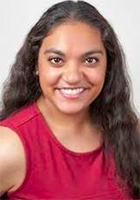Plastic Surgery Integrated Residency Program
The Plastic Surgery Integrated Residency Program at Northwestern University is known for its strong faculty, its impressive residents and its balanced structure. The program admits two plastic surgeons each year.
Visiting Students
To apply for a visiting student elective, please review the Feinberg SOM application requirements and submit your application to Visiting Student Learning Opportunities (VSLO) between March 10th and March 28th, 2025.
Visit ASPS' Fourth Year webpage to view our PD and residents' insights into the MS4 year and the Sub-I process.
About the Program
Application Process
Individuals interested in applying to the integrated plastic surgery residency program of the McGaw Medical Center of Northwestern University must submit their application via the Plastic Surgery Common Application (PSCA).
United States clinical experience is not required. The preferred visa for training at the McGaw Medical Center of Northwestern University is the J-1 visa sponsored through the ECFMG for residency/fellowship training. All international medical graduates must hold a current and valid ECFMG certificate in order for their application to be considered compete, including the clinical skills assessment, which must also be current and valid.
Each applicant must have taken and passed Step 1 of the USMLE and have a current/valid English qualifying examination.
Stipend & Benefits
Visit the McGaw Medical Center of Northwestern University site to view information regarding resident stipends and benefits.
Clinical Experience
The teaching hospitals of the McGaw Medical Center of Northwestern University as well as Shriners Hospital for Children provide clinical experience in the management of patients in all major areas of plastic surgical practice.
- Aesthetic Surgery: Intensive exposure to aesthetic surgery of the face and trunk
- Congenital Anomalies: Cleft lip and palate, microtia and craniofacial and hand deformities
- Reconstructive Surgery: Flaps and microsurgery
- Tumors: Benign and malignant tumors of the skin and head and neck
- Hand and peripheral nerve surgery
- Trauma: Injuries to facial bones, soft tissues, hands and lower extremities; correction of late deformities
Of the six years of clinical training, approximately four-and-a-half are spent on specific plastic surgery rotations. The remaining months are spent to ensure a well-rounded education in surgery. The training rotations fulfill the requirements of the plastic surgery residency review committee.
Outpatient Clinics
The McGaw Medical Center hospitals and outpatient departments operate active plastic surgery clinics, including a multidisciplinary cleft palate teams. The residents will assume a fair degree of autonomy in clinics at the Jesse Brown Veterans Administration Medical Center and the Shriners Hospital of Chicago. There is also a chief resident aesthetic clinic, which provides affordable cosmetic surgery to the Chicago community.
Research
The residency supports a fully-funded, required research year as part of our commitment to academics. Opportunities within the Division of Plastic Surgery include the Laboratory for Wound Healing & Regenerative Surgery, Laboratory for Craniofacial Biology and Section for Plastic Surgery Outcomes Research. Other resources include laboratories at Shirley Ryan AbilityLab, Simpson Querry Institute for BioNanotechnology and global health programs through Operation Smile in Mumbai.
Why Northwestern?
Housestaff training through McGaw Medical Center of Northwestern University provides diverse and challenging clinical experiences and world-class education located in the heart of the beautiful city of Chicago. Learn more via the links to the McGaw website below.
Watch Our Videos
McGaw Experience Discover Feinberg Northwestern Medicine Community Partnership Program Learn More About Chicago Get to Know Streeterville
Overview by Year
PGY1
Interns spend three months on the downtown NMH plastic surgery service. Those months are a combination of operative experience and caring for inpatients. Generally, the intern alternates every other day between being “in” the operating room versus “out,” covering the floor and consults. Due to the busy nature of the downtown service, the intern is often needed to help cover OR cases even on their “out” days. Types of cases covered by the intern include a variety of breast reconstructive cases, breast reductions, abdominal wall reconstruction, local flaps for Mohs and skin cancer reconstruction, skin grafts and pressure sore reconstruction. Consults include facial trauma, frequent intra-operative consults for assistance with closure and flap coverage, open abdomens in the ICU needing closure, wounds for patients on the floor and trauma/orthopedic/surgical oncology/vascular consults for unique flap coverage. The intern also works closely with PAs to run the service.
PGY2
Second-year residents spend two months on the downtown NMH plastic surgery service. This rotation is the time to start honing in on surgical skills. Much of those months are focused on breast reconstruction cases, along with increasing independence in all the variety of cases performed as an intern.
PGY3
During the PGY3 year, the resident spends a total of six months of Tuesdays and Fridays spent at the Jesse Brown VA Medical Center and Mondays, Wednesdays and Thursdays spent at at Northwestern Memorial Hospital (NMH) downtown.
The VA rotation serves as an introduction to graduated autonomy where the resident functions as the administrative chief of service. The resident runs Tuesday clinics where they will primarily evaluate patients and formulate their treatment plan prior to staffing cases with the attending. This process fosters critical thinking and requires great initiative on part of the resident to continually read and expand their knowledge base. Fridays are spent in the OR with both Dr. Dumanian and Dr. Ko. The resident is also responsible for the scheduling of surgical cases and contacting manufacturer representatives for any necessary implant and prosthetic materials. Common cases at the VA include hand trauma and arthritis, skin cancer reconstruction, abdominal wall reconstruction and breast reduction.The PGY3 resident usually preforms one to two free flaps while at the VA.
As the midlevel resident on service at NMH, the PGY3 resident spends Monday and Thursday in the OR and Wednesdays in clinic with Dr. Dumanian. The strengths of the NMH rotation are the high case volume, case diversity and lack of fellows. The PGY3 resident functions as the primary assistant in most cases. The PGY3 resident is also expected to primarily evaluate consults and formulate a preliminary plan prior to discussing and staffing of the consult with the PGY5, PGY7 and attending. At NMH, the residents are exposed to a wide gamut of cases, such as autologous and prosthetic breast reconstruction, abdominal wall reconstruction, orthoplastic lower extremity reconstruction, facial reconstruction after excision of skin cancer or other H&N malignancy and cosmetic surgery. It is not uncommon for two to three free flaps to be occurring simultaneously. In these scenarios, the PGY3 is called upon for microsurgical case coverage. By the conclusion of the six-month NMH rotation, the PGY3 will preform between two to five free flap reconstructions as the primary assistant where they perform the microvascular anastomosis.
Research Year
The residency supports a required research year as part of our commitment to academics. The research year has been an academically productive time for the residents, with most presenting at multiple national meetings and a multide of publications arising from the work done during that year. This is also the only year that the residents are able to obtain moonlighting priviliges. Many residents also participate in related and extracurricular projects, including clinical research, travelling mini-fellowships and mission trips or teaching in the surgical curriculum or the medical school anatomy curriculum.
PGY4-5
In these years, you will integrate the technical skills and knowledge you’ve gained in the first three clinical years and begin the transition from performing as a resident to performing as a surgeon.
The PGY5 is expected to meet the demands of operative autonomy and judgment for increasingly complex cases that span the gamut of a general reconstructive plastic surgery service at a major Level 1 center. These include complex abdominal wall reconstruction, lower extremity reconstruction with both pedicled (e.g., reverse sural, soleus, gastroc) and free flaps, adult craniofacial reconstruction (e.g., cranioplasty, free flap coverage of scalp wounds) and breast surgery of all varieties (e.g., breast reduction; breast reconstruction with TE, latissimus flaps, DIEP, secondary procedures; augmentation/mammoplasy), post-oncologic reconstruction across the body and a steady flow of intra-operative consultations for coverage from the other busy surgical services at NMH (e.g., groin coverage of bypass grafts, coverage of spinal hardware, APR defects). The NMH service has a high volume of reconstructive microsurgery, and approximately 30 to 40 percent of the free flaps are done by the PGY5 and attending, with the remainder done by the service chief (PGY7) and attending. In addition, the NMH service offers the PGY5 an experience in body cosmetic surgery (abdominoplasty, thigh plasty, liposuction) and occasional facial cosmetic surgery cases.
The PGY5 rotation at NMH demands that you take the next step in terms of leadership and patient management. A prior resident has used the analogy of the PGY5 being “chief of staff” to the PGY7, who acts as “president” overseeing the service. All consults seen by the junior residents and PAs are filtered through the PGY5, providing the opportunity to think critically and make important patient care decisions on a daily basis. The PGY5 similarly takes primary responsibility for patient decision-making for the inpatient plastic surgery service.
The PGY5 NMH service months are the most demanding of the year, but this makes growth possible.
PGY6
The NMH service is a high-volume, diverse service with majority reconstructive cases along with cosmetic cases and inpatient consults. By revisiting this rotation over several years throughout the program, the core adult faculty are able to provide pointed feedback and a higher degree of graded responsibility. By chief year, we aim for independence and confidence in the operating room from secondary breast procedures to free flaps. On service, the chiefs are ultimately responsible for overseeing the team of PAs and residents, confirming daily plans made by the PGY 5/6s and education.
Our Leadership
Physician-Scientist Training & Resources
We offer a wide range of resources, mentorship opportunities and formal training programs to help our residents and fellows excel as physician-scientists. Explore all of the resources and hear from housestaff who are making research a major part of their career development plans.
VISIT THE STARZL ACADEMY SITE


